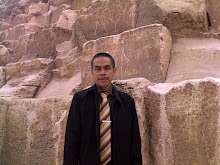
READING ON ISLAM OF PESANTREN
Beside as a social religious institution, pesantren (an Indonesian-based Islamic boarding school) also represents dominant Islamic religiosity in Indonesia with its characteristics as moderate one. Since it existed in about fifteen century, pesantren has been introducing and disseminating Islam with its core values emphasizing peace, moderation and its derivations, such as hospitality. Actually, this religiosity has been becoming main characteristic of islamization in Nusantara –later called Indonesia –when early Muslims missionaries introduced it to local communities there.
To spread and anchor such Islam, the institution always put the dialogue with local cultures and traditions in the front as well as made them as media of islamization. Put as an example, Sunan Kalijaga –one of Walisongo (nine Muslim saints), the early Muslim missionaries and the founders of pesantren in Java –made wayang kulit (traditional Javanese visual art) as media of propagating. Through the wise approaches and the strategies adapting communities’ condition, many people in Nusantara were not only interested in Islam, but also they did not consider it as something alien.
In compliance with that, pesantren tried to avoid one sided truth claims as well as not simply to accuse another religious sects as heresy and alike. It is right that pesantren professed –to some extent –strict religiosity called in Islamic term as fiqh oriented, but this institution put it together with sufistic, mystical Islam, aspect. As Abdurrahman Wahid (1994) stated, sufistic fiqh was characteristic of pesantren scholarly.
Based on this scholarly, religiosity of pesantren stressed on both implementing rituals and internalizing spiritual aspects of religion. Emphasizing on the spirituality brought pesantren into religiosity full of modesty, and sincerity. Besides, it put the institution and its people on ability to respond life problems changing continuously. They responded the changes wisely and peacefully, though they did not always approved it.
Those characteristics have been solidifying pesantren as contextual Islam anchoring noble Islamic values into life realities. Before Indonesia independent, pesantren communities has considered that nationalism as an effect of modern world is a part of political aspects Muslim people especially in Nusantara must accept it. When Indonesia became independent, they stated that Pancasila with its democratic elements is final state for Indonesian Muslims.
So far, pesantren generally still hold those gracious characteristics. The rampant of an unhistorical –even utopian –transnational Islam nowadays just have an effect on a few pesantren and on a few figure of pesantren. Their spellbound usually refers to political matters as well as their weaknesses of understanding tradition and history of Indonesian Islam. Most of pesantren and its people are almost impossible to follow simply such radical Islam since they have a strong root of local traditions and of substantive Islamic values as well.
At this point, pesantren clearly have ability to distinguish Islam in the holy Text and Islam in Muslim thoughts. The first as God “words”, as revelation is universal, absolute, and metahistoric, and the latter is interpretation of the Text linking historically to certain locus and definite moment. Based on this, pesantren strives to contextualize the universal one to concrete lives. Islamic universal values must be brought to realization into realm of Indonesia. At the same time, the institution appreciate various Muslim thought as far as they conform to basic Islamic values.
Islam of pesantren actually represents Islam of Indonesian Muslim majority always trying to bring peace into reality. Hatred, violence and alike in the name of Islam do not come from those majority. On the contrary, they will condemn such hostility whenever and wherever. They believe that the present of Islam is for blessing for all creation.
However, in the present world loaded with hatred and violence, pesantren meet strong challenge to perpetuate –even to develop –its wise religiosity. Due to economic and politic problems to which many Muslims are so in weaknesses to face, pulling to get short cut (such as through violence in the name of God) is going more and more stronger. To face the problems with its impacts, the institution have to develop its education matching the present conditions from which pesantren and its communities have wide horizon and enough capability to respond the dynamic situations. This development surely must base on the noble Islamic values which pesantren hold firmly from time to time. Thus, Indonesian Islam from now on would still have cool face and comfort not only for Indonesian people, but also for all over the world.
* Alumnus of Pesantren Annuqayah Sumenep Madura







No comments:
Post a Comment